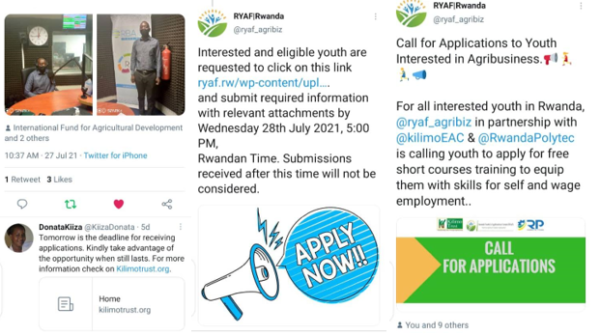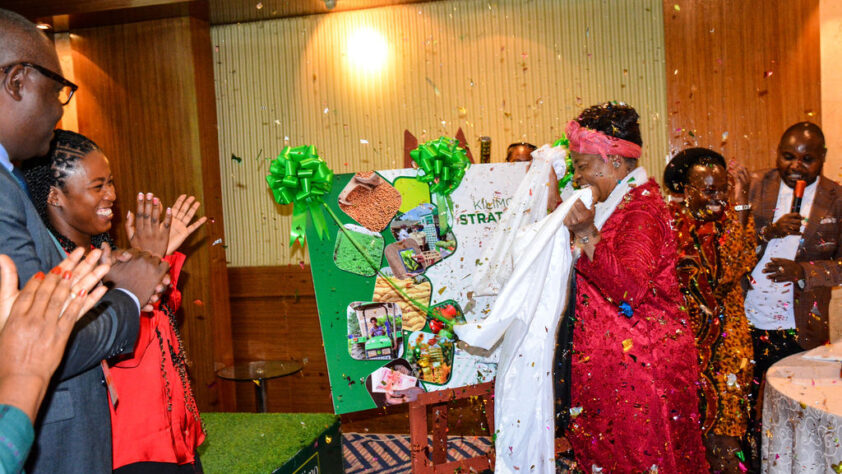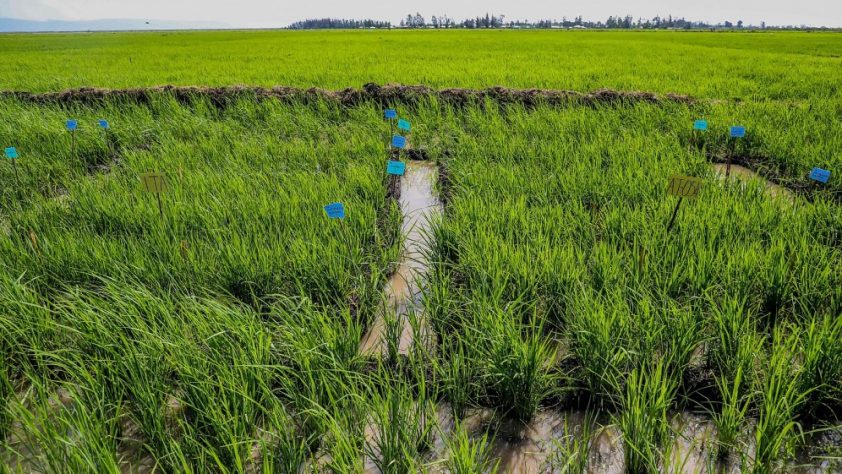The Rural Youth Employment Support (R-YES) project is a 5-year project (2020 – 2024) funded by the International Fund for Agricultural Development (IFAD) and the German Federal Ministry for Economic Cooperation and Development (BMZ) implemented in Rwanda by a consortium led by Kilimo Trust. Other consortium members including Rwanda Youth in Agribusiness Forum (RYAF) and Rwanda Polytechnic through its Integrated Polytechnic Regional Colleges (IPRCs) and agribusiness companies as centers for training.
The R-YES project goal is to create 1,200 youth jobs and 1,800 as indirect jobs. The project is focusing on youth aged between 18 and 30 years from across 16 target districts incuding Kamonyi, Nyanza, Ruhango, Huye, Rusizi, Gisagara, Rulindo, Musanze, Burera, Gicumbi, Nyabihu, Rubavu, Nyagatare, Rwamagana, Kayonza and Bugesera.

To identify and onboard youth for the first cohort of training, R-YES project deployed a transparent and inclusive approach. Firstly, ensuring the buy in by all key stakeholders involved in direct or indirect implementation of the project was key. All 16 target districts were visited in an awareness campaign that was conducted jointly with all key project implementing partners; Kilimo Trust, RYAF and RP.

During the campaigns, the team visited district mayors and other district officials explaining what the R-YES project is all about, and the importance of the districts’ involvement in the project implementation journey. During these visits, each district appointed a focal person to follow up and support the project moving forward.
After informing district officials about the project, a consultative meeting was held aimed at discussing the modalities of engagement and validation of the call for youth applications. The meeting involved all implementing partners, RYAF, Rwanda Polytechnic and industries.
Upon validation by all partners, the call for youth applications was published. The call for application was clearly written in both English and Kinyarwanda for ease of interpretation by the youth applying. Three R-YES project staff contacts were indicated in the call for more explanations and clarification by the applicants.
The call for application was published on all partners’ websites including Kilimo Trust, RYAF and Rwanda Polytechnic. It was also shared with district officials who further shared the call on their different administrative WhatsApp groups. District officials also printed and hanged the call on district and sector noticeboards for quick circulation of information to the youth.
To further create awareness about the call, radio and social media was used. R-YES implementing partners conducted a radio talk show on Radio Rwanda where they informed rural youth about the call for application and where to find the link of the call for application. Social media platforms like twitter, facebook, linkedIn and WhatsApp groups were used to create awareness about the call for application.


An online application portal was created for the process transparency and give chance to every rural youth to apply without discrimination. The online application portal was translated to both English and Kinyarwanda, making it user-friendly.
Interested youth applied by clicking on a provided link to an online application portal where they filled required information and submitted their applications. Submissions were extracted in an excel sheet by a designated administrator on the portal.
All applications received were subjected to set selection criteria to obtain the right candidates for training. The first call for application attracted 1,502 applicants out of which 651 applicants that met all set criteria were selected.
Gender inclusion
While identifying and on-boarding youth, gender inclusiveness and disability components were taken into consideration.
Females and persons with disability were highly encouraged to apply and this was specified by the applicant while filling the online application form. Out of the selected candidates to begin training in the first cohort, over 50% were women. The R-YES team also worked closely with district officials to reach families with unemployed youth with disability. These families were reached out to and informed about the project and opportunities to train youth living with disabilities in agribusiness related activities. A total of eight (8) youth with hearing impairment were enrolled for work-based at Masaka Creamery Ltd in milk processing and out of the eight, four (4) have been employed and offered permanent employment contracts.
Social inclusion
To ensure social inclusiveness, the call for application was open to all youth in different Ubudehe/income categories to give a chance to all rural youth to benefit from the R-YES programme.
Local leaders at all administrative levels in 16 target districts (district, sector and cell) were involved in informing youth about R-YES training programme and the call for application. The leaders were also helpful in providing relevant documents needed for submission during the application process such as the residence certificates.
Applications received for the first cohort show representation from at least three out of the four Ubudehe/income categories recognized in Rwanda, and all the sixteen (16) target districts are represented. Kilimo Trust appreciates funding from the International Fund for Agricultural Development (IFAD) and the German Federal Ministry for Economic Cooperation and Development (BMZ) for the implementation of the R-YES project in Rwanda.


